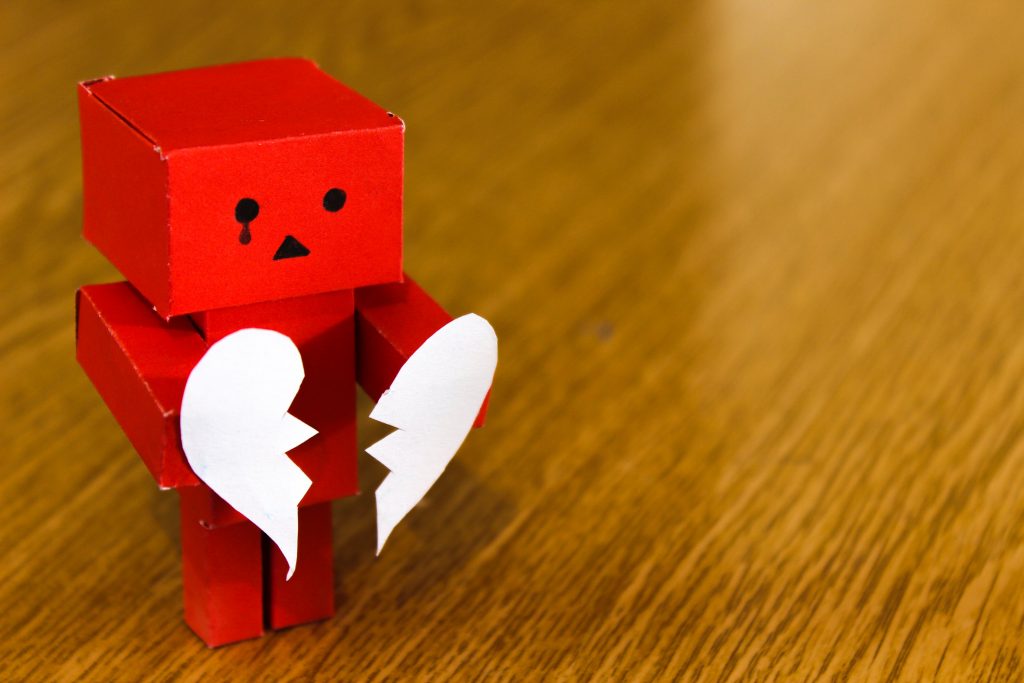This post is also available in Dutch .
Broken heart or broken brain?
The phrase of being broken hearted or having a broken heart did not come out of nowhere. But is it really our hearts that should be blamed for our suffering or, rather, our brains? In fact, the heart and the brain are more closely related than we might think; they actually affect each other quite a lot. For example, heart disease can cause depression, as well as the other way around. Depression treatments can, however, also affect heart conditions in a positive way (e.g., stress reduction, motivation increase, quality of life improvement). In particular, the heart is also involved in emotions. After a breakup, we can actually suffer from the broken heart syndrome: The usual size and beat rate of the heart becomes irregular, causing a strong pain in the chest. The symptoms are indeed similar to those of a heart attack, the cause of which, however, is stress (which, again—believe it or not—originates from the brain).
Love as a drug
Even if we consciously accept a breakup, we still suffer from it. Why is that? Love has similar effects on the brain as a drug and can thus affect us just like an addiction. This explains why a breakup can be seen (or especially feel) like withdrawal. For example, seeing or thinking of your ex-partner activates the same brain areas as those in people who are in withdrawal from cocaine. Blamable for this is the part of your brain that is involved in falling in love (or should we, from now on, call it getting addicted to love?). Even after the breakup, this brain area, called the ventral tegmental area, will still be in love with your ex-partner, and there is basically nothing you can do about it. Research has also shown that the brain processes emotional pain in the same way as physical pain. Yet, other parts of our brains that are involved in regulating emotions will respond to the breakup and will work on getting over it.
Reaching the light at the end of the tunnel
Unfortunately, there is no secret ingredient for how to deal with or get over a breakup. The length of the tunnel and the way in which we drag ourselves through it in terms of speed and effort is unique to each of us. But in the dark times of a breakup, as we just learned, love is an addiction; our brains are in withdrawal and the emotional pain we experience is actually real. These are scientific facts, so most of all, we should not feel guilty about suffering and allow our bodies to do so.
Nevertheless, we should not let a breakup get us down and try our best to go out and engage in activities that make us happy. Physical exercise, for example, has been shown to help with stress and depression and positively affect mood. Also, exchanging experiences with friends about how other people deal with a breakup can help. Even though our very own breakups seem to be the worst in human history, we are not alone out there. Keeping in mind the underlying science to our suffering might at least give us some consolation. Either way, we will get over it and move on at some point, so heads up!
Original language: English
Author: Natascha Roos (guest blogger)
Buddy: Francie Manhardt
Editor: Christienne Gonzales Damatac
Translator: Felix Klaasen
Editor Translation: Jill Naaijen
Photo by burak kostak on Pexels (CC0 1.0).
